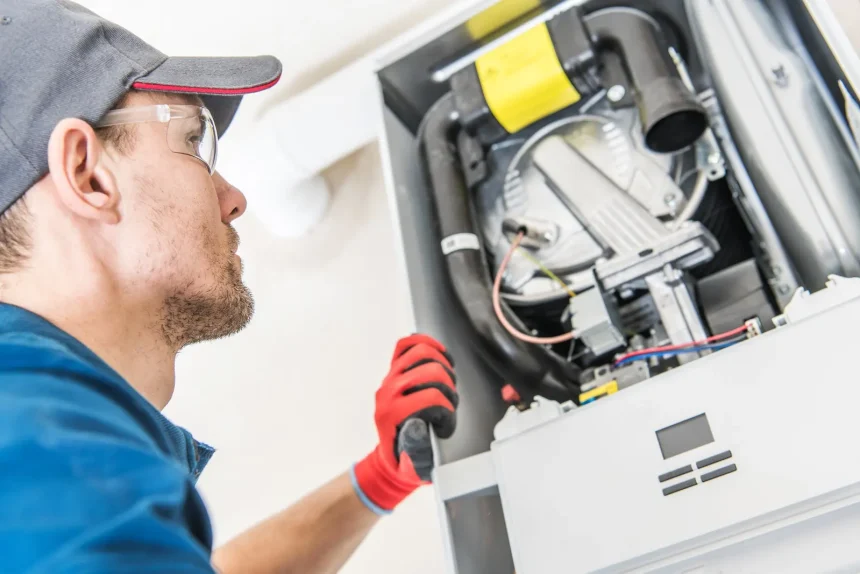Do you use a boiler as your heating system? If you do, pay attention to its upkeep because it’s vulnerable to wear and tear, just like any hardworking appliance. Ignoring routine maintenance can lead to unexpected problems, from strange noises to uneven heating and skyrocketing energy bills.
If you want to make the most out of your system following a boiler installation in Newfoundland, NJ, read on as we reveal potential causes of heating inefficiency.
The Consequences of Neglecting Boiler Maintenance
Failing to keep up with regular boiler maintenance can have long-term repercussions. A poorly maintained boiler consumes more energy, increasing heating costs and placing unnecessary strain on components. The risk of premature breakdowns, expensive repairs, or even the need for a complete replacement increases the longer you ignore your boiler.
Neglected boilers are rife with safety issues. Carbon monoxide leaks, though rare, pose a serious risk and often stem from blocked or corroded flues. A tune-up from local boiler contractors includes checking these components for safety. Annual inspections help professionals catch minor problems from causing potential disasters.
Beyond financial and safety risks, an inefficient boiler also contributes to environmental harm. Excessive energy use increases your carbon footprint, making regular maintenance not just a smart choice for your home but a responsible one for the planet.
Why Choosing the Right Boiler Matters
The type of boiler you install determines system efficiency. Choosing the right model ensures consistent performance and lower energy bills.
Modern condensing boilers, for instance, are highly efficient because they recover heat from exhaust gases that traditional boilers lose.
If your current boiler is over 15 years old, upgrading to a newer model could save you up to 30% on heating costs, according to energy efficiency experts.
Your home’s size and heating needs should be your guide in choosing the ideal boiler for your space. A small apartment might thrive with a combination boiler, which provides heating and hot water on demand. Larger homes, on the other hand, benefit from systems or conventional boilers that can handle higher water usage.
When in doubt, get in touch with professional boiler services. They’ll assess your home’s specific requirements and recommend the best option for efficiency and comfort. Be warned—investing in the wrong boiler can lead to higher running costs and inadequate heating.
Signs It’s Time to Upgrade Your Boiler
Even the most reliable machines won’t last forever, and that includes a workhorse of a boiler. Knowing when to seek boiler replacement can save you from costly repairs and unreliable performance.
If your energy bills have been steadily climbing despite regular maintenance, it might be a sign that your boiler is no longer operating efficiently.
Frequent breakdowns are another glaring warning sign. Although repairs may, at times, suffice, at a certain point, replacing the boiler becomes more cost-effective than continually fixing it.
Similarly, if your boiler struggles to heat your home evenly or takes longer than usual to deliver hot water, its days may be numbered.
Noise is another indicator that your boiler is due for a replacement. Banging, clunking, or whistling sounds often point to internal issues like limescale buildup or failing components. While some noises can be resolved through servicing, persistent problems may end in a new boiler installation.
Finally, don’t overlook your boiler’s age. Most units have a lifespan of 10-15 years. If yours is nearing or past this mark, upgrading to a modern, energy-efficient model could drastically improve performance.
The Benefits of Professional Boiler Services
Enlisting professional services for your boiler ensures that every aspect of its operation is optimized. Experts use specialized tools and techniques to clean components, replace worn parts, and recalibrate settings. This helps restore efficiency but extends the life of your boiler.
A professional inspection can’t be complete without checks for safety hazards, a process where they check for gas leaks or ventilation blockages. These issues are nearly impossible to detect without expert intervention.
Regular servicing prevents problems while improving day-to-day comfort. A well-maintained boiler delivers consistent heat, operates quietly, and responds quickly to changes in thermostat settings.
Since your boiler is central to heating your home, keeping it in top condition should be given close attention. By scheduling annual maintenance, addressing problems early, and upgrading when necessary, you can enjoy reliable heating, lower energy bills, and a safer living environment.














